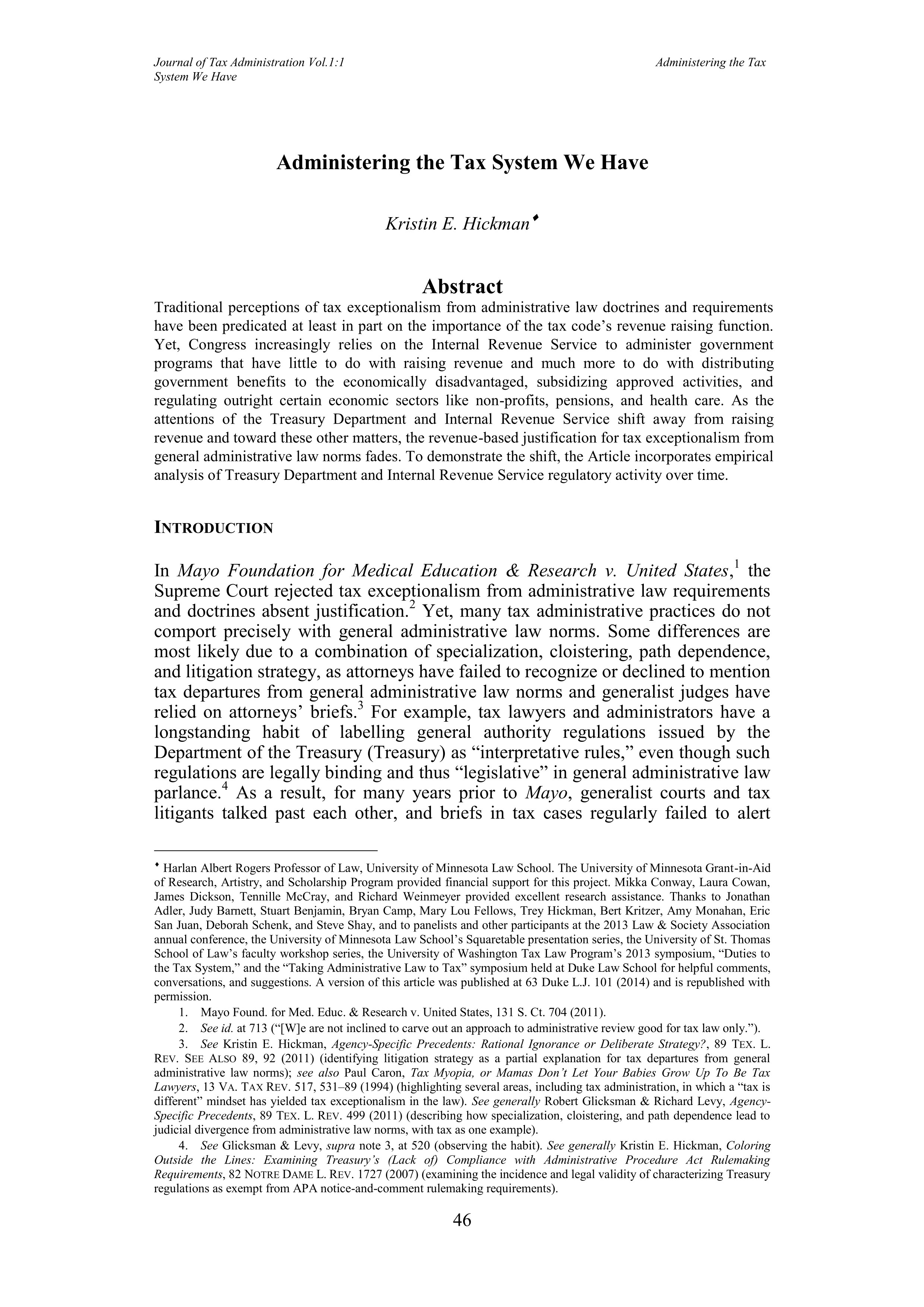Administering the Tax System We Have
Abstract
Traditional perceptions of tax exceptionalism from administrative law doctrines and requirements have been predicated at least in part on the importance of the tax code’s revenue raising function. Yet, Congress increasingly relies on the Internal Revenue Service to administer government programs that have little to do with raising revenue and much more to do with distributing government benefits to the economically disadvantaged, subsidizing approved activities, and regulating outright certain economic sectors like non-profits, pensions, and health care. As the attentions of the Treasury Department and Internal Revenue Service shift away from raising revenue and toward these other matters, the revenue-based justification for tax exceptionalism from general administrative law norms fades. To demonstrate the shift, the Article incorporates empirical analysis of Treasury Department and Internal Revenue Service regulatory activity over time.

Downloads
Published
How to Cite
Issue
Section
License
Copyright (c) 2015 Kristin E. Hickman

This work is licensed under a Creative Commons Attribution 4.0 International License.
Our open access status means that authors retain the copyright of their work. However, all papers published in JOTA are done so under a Creative Commons Attribution 4.0 International license (CC BY). This means that others can share and/or adapt your work without your permission as long as they follow certain rules, including attributing your work correctly.
You can learn more about this on our Open Access, Licensing, and Copyright Policies page.



